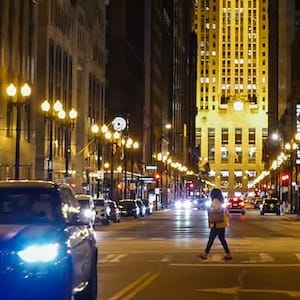make a scene: Idiom Meaning and Origin
What does ‘make a scene’ mean?
The idiom "make a scene" means to create a loud or disruptive situation in public, often drawing attention and causing embarrassment or discomfort.

Idiom Explorer
The idiom "stir shit" means to purposely create trouble or provoke conflict by saying or doing something provocative or controversial.
The idiom "raise the roof" means to create a loud uproar or excitement, usually in response to something notable or impressive. It is often used in a celebratory or enthusiastic context.
The idiom "raise hell" means to cause a disturbance or make a lot of noise and trouble, typically to express anger or frustration.
The idiom "raise eyebrows" means to cause surprise, curiosity, or disapproval. It suggests that something is unexpected or unusual, often leading others to question or doubt the situation or action.
The idiom "raise Cain" means to make a big fuss or cause a lot of trouble and chaos.
The idiom "pull faces" means making funny or distorted facial expressions to show amusement, disbelief, or contempt.
The idiom "pull a face" means to make a facial expression, usually one that shows dislike, disgust, or annoyance.
When someone makes a splash, it means they attract attention or create a big impact, usually in a dramatic or noticeable way.
The idiom "make a spectacle of oneself" means to behave in a way that attracts attention and makes one look foolish or embarrassing.
Dramatic Public Displays
Make a scene is an idiom that is commonly used in the English language. It refers to the act of causing a disturbance or creating a commotion in a public or private setting. This expression is often used to describe an individual who becomes highly emotional or outraged, and their behavior draws attention and disrupts the normal flow of activities.
The origin of this idiom can be traced back to the 19th century. The word "scene" in this context refers to a theatrical performance or a specific part of a play. When an actor performs a scene, they are actively engaging with the audience and creating a spectacle. Similarly, when someone "makes a scene," they are behaving in a manner that garners attention, just like an actor on stage. This idiom draws a parallel between a disruptive individual and a performer who captures the spotlight.
The phrase "make a scene" gained popularity in the early 20th century and has since become ingrained in everyday language. It is often used to describe situations where someone reacts in an exaggerated or dramatic manner, usually resulting in embarrassment or awkwardness for themselves or others involved. Making a scene can occur in various settings, including social gatherings, public spaces, or even within a person's own home.
When someone makes a scene, their behavior is typically characterized by loud or aggressive outbursts, shouting, crying, or throwing objects. This type of disruptive behavior can create tension and discomfort among those present, as it deviates from social norms and expectations of appropriate conduct. Individuals who resort to making a scene may be seeking attention, trying to exert control, or expressing their frustration or dissatisfaction.
There are varying degrees of making a scene, ranging from mild disturbances to extreme confrontations. In milder cases, the individual may voice their concerns or opinions loudly, drawing attention to themselves and disrupting the immediate environment. However, in more extreme cases, the person making a scene may engage in physical altercations or damage property, leading to potential legal consequences.
It is important to note that making a scene is generally viewed as negative behavior, as it can be disruptive, disrespectful, and intrusive. While there may be instances where expressing emotions or standing up for oneself is warranted, it is crucial to consider the context and consequences of such actions. Making a scene can strain relationships, create a negative perception of the individual, and result in social or legal repercussions.
The idiom "make a spectacle of oneself" is closely related to "make a scene." It refers to someone intentionally drawing attention to themselves through outrageous behavior or actions, often resulting in embarrassment or humiliation. When someone makes a spectacle of themselves, they go above and beyond simply making a scene and actively seek to create a dramatic display for others to witness.
Similarly, "make a show of oneself" is another idiom related to "make a scene." It also implies intentional behavior designed to draw attention, but with a focus on creating an impression or gaining admiration. When someone makes a show of themselves, they may engage in exaggerated or attention-seeking actions to present themselves in a certain way, regardless of the consequences or impact on those around them.
The idiom "make an ass of" is yet another variation of "make a scene." However, this idiom takes a negative turn, as it suggests that someone's behavior has made them the subject of mockery or ridicule. When someone makes an ass of themselves, they have not only caused a disruption but also acted in a foolish or embarrassing manner, leading others to view them as a source of amusement.
Similarly, "make an exhibition of oneself" is another related idiom that emphasizes the element of display and showmanship. When someone makes an exhibition of themselves, they deliberately draw attention to their actions, often with the intent of impressing or shocking others. In doing so, they may disregard social conventions or norms, resulting in discomfort or disapproval from those witnessing the spectacle.
Lastly, we have the idiom "make a mockery of," which can be closely associated with "make a scene." This idiom suggests that someone's behavior or actions have undermined or trivialized a situation, making it appear ridiculous or meaningless. When someone makes a mockery of something, their disruptive behavior and disregard for appropriate conduct can lead to a loss of respect or credibility.
Example usage
When the angry customer didn't get a refund, he made a scene in the store, shouting and throwing items off the shelves.
At the wedding reception, the drunken uncle made a scene by dancing on the tables and singing loudly.
When the actress was booed off stage, she made a scene by storming off and slamming the door behind her.
The idiom "make a scene" is used to describe a situation where someone attracts attention by behaving in a loud, disruptive, or dramatic manner. It is often used to convey the idea of causing a disturbance or creating a spectacle. In the first example, the angry customer's actions draw attention and disrupt the store's normal operation. Similarly, the drunken uncle in the second example behaves in a way that captures everyone's attention and disrupts the atmosphere at the wedding reception. Finally, the actress in the third example reacts to negative feedback by creating a dramatic exit, causing a scene that leaves an impact on the audience. Overall, "making a scene" refers to drawing attention through disruptive or dramatic behavior in various contexts.
More "Expression" idioms



